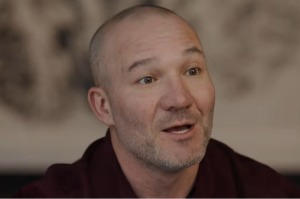Pastor tortured in Iranian prison fears deportation from Turkey after 4 years

A pastor who fled to Turkey after spending over a month in Iran’s most notorious prison is desperate for help as he and his family are facing deportation, which would result in his imprisonment and possible torture.
Pastor Esmaeil Falahati, a former Muslim who came to Christ at age 23 and planted house churches across Tehran for a decade, told The Christian Post that his family might soon have to flee after four years in Turkey or run the risk of being sent back to the Islamic Republic.
In Iran, Falahati is a convicted man set to serve years in prison because he preached the Gospel of Jesus Christ to a community of ex-Muslims trying to live out their new faith in peace.
Along with his wife, Falahati secretly led worship services and traveled to the homes of fellow convert believers.
But in August 2015, plainclothes police officers interrupted a prayer service attended by over 30 people in a garden in west Tehran. Falahati has suspicion to believe that they had been “ratted out” as Iran’s Shia theocratic regime bans Christians from sharing their faith with non-Christians.
All were arrested and questioned for hours, he said, while police searched the pastor’s house, gathered Bibles and other Christian items. Eventually, Falahati, the owner of the garden and two others were transferred to section 209 of Evin Prison.
Falahati spent 33 days in solitary confinement and was eventually charged with propagating against the Islamic regime and intent to disrupt national security.
“I was tortured and questioned about my services and preaching the Bible,” the pastor said through a translator, adding that he lost a lot of weight and suffered from medical problems during imprisonment.
During his imprisonment, his wife and family were also arrested, tortured and questioned for 12 hours for supporting his case.
On Sept. 9, 2015, Falahati was temporarily released on bail by the Revolutionary Court. He said he was told by guards that it would be better for him to leave Iran or run the risk of being harmed.
About 40 days later, Falahati, his wife and two children fled their native land. And a month after that, the family arrived in Turkey and registered with the United Nations High Commissioner for Refugees.
The family has been in Muslim-majority Turkey, a NATO ally, for nearly four years.
However, Falahati contends that the Turkish immigration department has not given his family a fair shake, especially after Turkish authorities found out about his new ministry work preaching to families in Turkey.
“We don’t receive any services which are provided for other refugees,” Falahati said. “We have no security, identity and nationality only for the crime of being Christian. It seems that we are in a bigger prison.”
Turkey on edge
The family arrived in Turkey the year before the July 2016 coup attempt against the government of authoritarian President Recep Tayyip Erdogan took place.
In retaliation, Erdogan began an enormous crackdown on anything and anyone it suspected of having ties to the coup attempt or groups the government considers to be terrorists.
The Erdogan government reportedly detained over 160,000 people for questioning and formally arrested 77,000 people for alleged links to terror.
As Turkey hosts the largest number of refugees of any country worldwide (over 3.6 million Syrian refugees), the country has in recent years carried out mass deportations or forced returns of Syrian and Afghan refugees.
"Turkey has welcomed millions of refugees over the past decade, a situation which has put great strain on the nation’s economic and social systems," Claire Evans, a regional manager for the U.S.-based persecution advocacy nonprofit International Christian Concern told CP. "Most refugees live in Turkey for many years before they are placed in a new country. Since the 2016 coup attempt, Turkey has become more closed towards any foreigners."
The Turkish government has been accused of deporting dozens of foreign pastors and missionaries.
Although President Donald Trump seems to have an improved relationship with Erdogan today, the Erdogan government had arrested and detained North Carolina missionary Andrew Brunson for over two years before his release in 2018 on trumped-up charges of terror connections.
Brunson, who spent over 23 years in Turkey before his arrest, told the U.S. Commission on International Religious Freedom in June that he knows of dozens of foreign church leaders and their family members that Turkey has deported in recent months for being a “threat to national security.”
Joining the list of deportees soon could be Falahati and his family.
A new ministry in Turkey
Falahati said that about a year after arriving in Turkey he became familiar with a Canadian-Iranian pastor in charge of a Persian language department at a foreign university in Turkey.
At that university, Falahati, his wife and sister-in-law studied Christian theology, apologetics, history of Christianity and method of hermeneutic interpretation for one year. While studying at the university, Falahati was reunited with some former congregants of his house church ministry in Iran.
“It was as if the Lord was reviving my family and me and preparing us for a new season in our life,” Falahati said. “Seemingly Jesus was glorified again in my life through my faith in prison and prosecution and this revived and brought blessing for those who left me while I was being prosecuted.”
Again, Falahati and his wife started up a ministry. This time they called their ministry "Baptism Church of Great Grace.”
“After being released from prison, initially I thought that my life is over,” Falahati explained. “They took our life, business and our money and fired us from our country. But evidently Jesus had a greater plan for me. A wider service and deeper knowledge.”
Falahati’s new ministry in Turkey has continued to grow. He said he is teaching the Gospel on a full-time basis in different cities. He has been able to provide for his family through the gifts given by members of his church.
While in Turkey, Falahati was sentenced in absentia by the Revolutionary Court in Iran on charges including establishing a house church and action against national security.
“Currently my case is open at this court and as soon as I return to Iran my judgment is applicable,” Falahati stressed.
Although he has registered as a refugee with the U.N., Falahati has said that he has not been interviewed yet and his case is still pending.
“Since UNHCR has [closed registration in Turkey], I have undergone too much pressure as a Christian pastor by the Turkish government,” Falahati explained.
According to ICC's Evans, UNHCR stopped registration in Turkey last year in a decision that was not supposed to affect any refugee in the system at that time. However, "many have found their cases deadlocked." She said that Turkey is in broader conversations about how many refugees they can continue to house in-country and how many to send home.
"Iranian refugees have to spend years building some kind of life in Turkey while they wait for news about their asylum case, and the changing environment in Turkey makes this wait more difficult," Evans said. "As it relates to Iranian Christians seeking refugee status because of religious persecution, there has been no clear international leadership examples on how to handle their cases."
Residence license invalidated
About a year ago, Falahati’s residence license was invalidated by the immigration department in the city he was residing in. Additionally, he told CP that his family was issued a written order to leave Turkey.
“They did this to me only because I commuted to Ankara to give my Christian services without the permission of the immigration department,” he said, contending that other refugees who were not Christian were permitted to leave their cities.
“They told me laughingly that a Christian pastor is not allowed to take leave.”
Although his family appealed the verdict, a lower court sided with the Turkish immigration department four months later. About six months after that, a second court sided with immigration authorities.
“[The government] provides good services for Afghans, Syrians and Iraqis because they are Muslim,” Falahati argued. “But it treats and looks at me as an Iranian Christian pastor with contempt and hatred because I was Muslim before and now I am Christian.”
In addition to no longer having a residence card, Falahati and his family are without insurance coverage and have had trouble registering their son for school.
“Financial problems are so frightful and irritating,” he stressed.
“I am not only ashamed of Jesus, but also I suffer the hardships and injustice with honor and joy,” he added. “I ask all my dear brothers and sisters in Christ to pray for our mental conditions, our requirements as well as our financial problems and if you feel you can do anything for us in this regard, we sincerely welcome your services and assistance.”
Evans said that there are "several global examples" of Iranian Christians being sent back to Iran, "where they immediately began facing persecution.
"The fear is very real, whether one has applied for refugee status from within Turkey or another country," she wrote.
Evans told CP that Turkey's deportation of Christian evangelists is a "separate issue" from its deportation of refugees and immigrants as the evangelists are often in the country legally with a long-term residence permit.
"Turkey’s history allows for the cultural interpretation that foreign Western Christians are the cause of periods of severe hardship for the country," Evans explained. "Without a doubt, Turkey is under much strain at the moment. Meanwhile, Western expressions of Christianity are growing throughout the country. It is estimated that at least 30 foreign Christian evangelists have faced sudden deportation this year, signifying an alarming new trend for the more permanent Christian community in-country."
"The evangelists were deported after being falsely labeled as terrorists or a national security concern. All held some sort of leadership position within the local Christian community," she continued. "For the permanent Christian community living in Turkey, there is great fear that these deportations foreshadow a period of hardship that may arrive sooner than expected."
Follow Samuel Smith on Twitter: @IamSamSmith
or Facebook: SamuelSmithCP



























